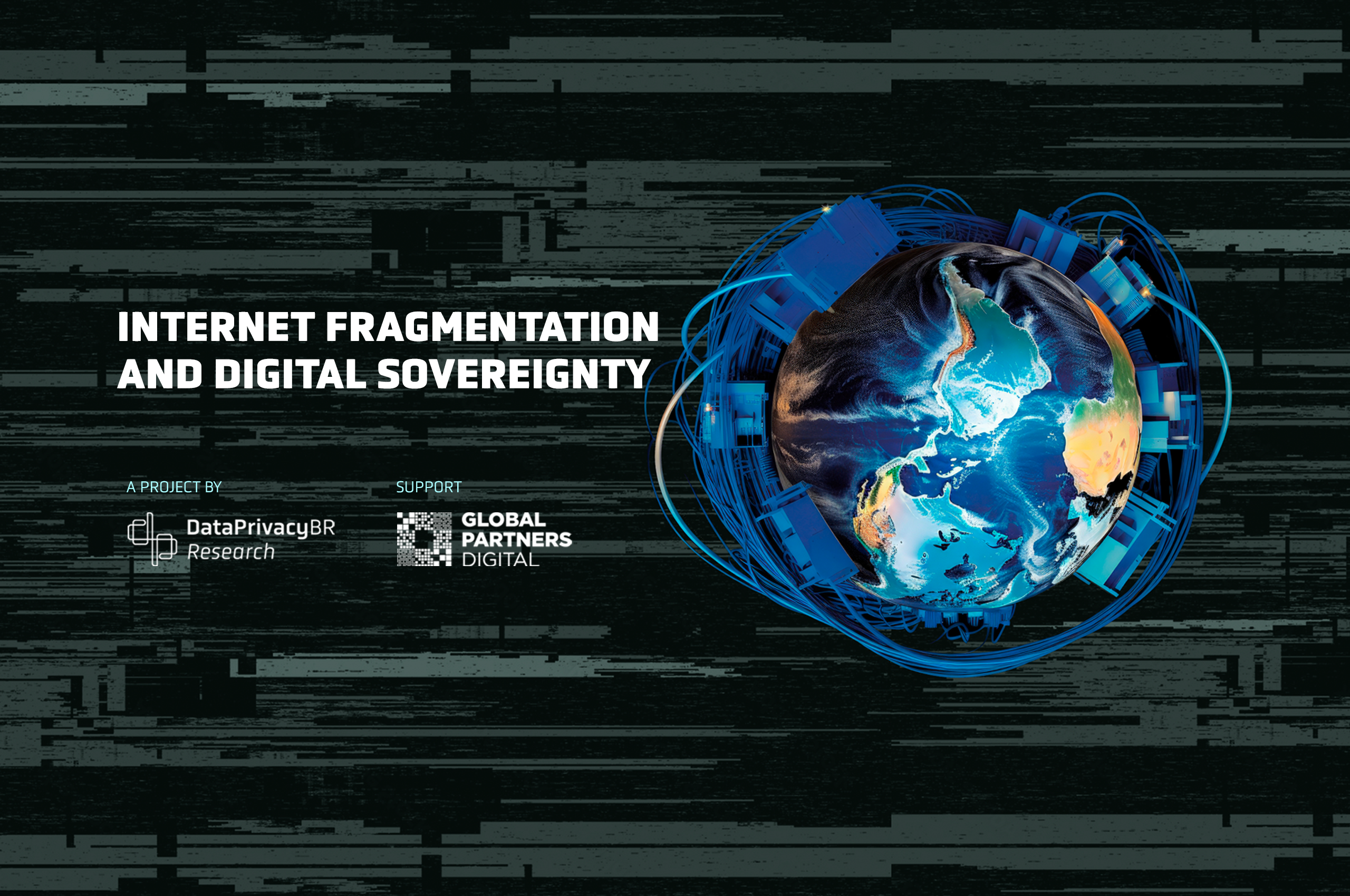Governance and Regulation
Internet Fragmentation and Digital Sovereignty
Objective: To investigate the relationship between technical standards related to privacy, and Internet fragmentation, in order to enable an open, interoperable, trustworthy and secure Internet that promotes and protects rights.
Duration: 1 year and 9 months
Status: Em Andamento
Supporter(s): Global Partners Digital
Description
This project aims to strengthen the capacity building of civil society organizations to counter the fragmentation of the Internet. To accomplish this goal, we are working to develop and implement advocacy strategies in technical forums and other international Internet Governance spaces, focusing on issues related to privacy and data protection (technical standards for IoT, DNS, IP and standards for data-intensive applications). Through connections with other global civil society organizations, national authorities and private sector partners, we seek to strengthen a multistakeholder alliance and influence the outcomes of technical standard-setting bodies to counter Internet fragmentation.
The systematic engagement of civil society organizations – especially those based in Global South countries – in standard-setting bodies is fundamental to counter Internet fragmentation and to build a solid foundation to support an open, interoperable, trustworthy and secure Internet. So far, however, civil society engagement in standard-setting bodies is limited to a few organizations, mainly from the Global North, who get involved, sporadically, with major conferences, such as the ones hosted by the International Telecommunications Union (ITU). This is partly due to the lack of technical capacity and limited understanding of how such bodies operate, as well as the lack of funding and necessary resources for a meaningful engagement.
Additional barriers include the nature of the standard-setting bodies, such as the highly specialized/technical nature of discussions, restrictive membership structures (in the case of the ITU, decision-making is reserved for government members only), lack of transparency and limited access to relevant documents and procedures, and high costs to participate in processes that can span several years. Therefore, strengthening connections and joint action between civil society organizations is essential to change this scenario and to promote greater inclusion and diversity in technical forums, considering the concerns and needs of the Global South.
Finally, the project seeks to locate and provide better outlines for the emerging “digital sovereignty” debate in Brazil and the relationship between this debate, and technical and political decisions on Internet Governance.

